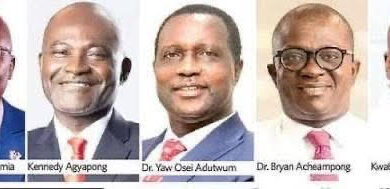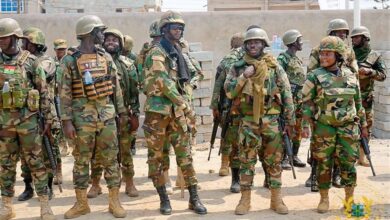Pin Up Online Online Casino Azerbaycan ️ Onlayn Kazino Pinup Rəsmi Sayt
Pin Up Online Online Casino Azerbaycan ️ Onlayn Kazino Pinup Rəsmi Saytı
Pin Up 306 Casino Giriş Qeydiyyat, Bonuslar, Yu
Content
- Pin-up Casino-dan Nə Qədər Pul Çıxarmaq Olar?
- Pin Up Kazinosundan Necə Pul Çıxarmaq Mümkündür
- Pin-up Onlayn Casino Saytının Slot Machine Game Maşınları
- Slotlar
- Pin-up Casino Haqqında Tez-tez Verilən Suallar
- Pin Up Onlayn Kazinoda Uduşlarımı Necə Çıxara Bilərəm?
- Ödəniş Sistemlərinin Icmalı Pin Upward Kazino
- Pin Up Online Casino – Pin Up Az Onlayn Kazinosunun Rəsmi Saytı
- Mobil Proqramımı Necə Yeniləyə Bilərəm?
- Pin-up Oyunu
- ⚽rəsmi Sayt Pin Number Up Oyunu- Idman Mərcləri Və Bukmeker Kontoru
- Kazino Proqramında Bukmeker
- 💵uduşları Karta Çıxarmaqla Pin Up Casino-də Real Pulla Oynayın
- Pin Up Casino Arizona Pulu Necə Yerləşdirmək Və Çıxarmaq Olar
- İdman Mərcləri Flag Up
- Promosyonlar Və Bonus Sistemi Pinup Az
- Rulet Oyunu
- Pin Up Rəsmi Veb-saytı – Imkanların Icmalı
- Pros Və Cons Of Pin Upward 360
- Stolüstü Oyunlar
- Pin Up 360 Azerbaycan Saytında Qeydiyyat
- Pin Up Bet Azərbaycan – Rəsmi Azerbaycan Bukmeker Kontoru Pin Up Casino
- Pin Up Casinoya Giriş
- Pin-up Casino Saytında Qeydiyyatdan Keçərək Reward Qazanın
- Pin Up Depozit Və Vəsaitlərin Çıxarılması, Depozit
- Pin Up Kazino Haqqında Tez-tez Verilən Suallar
- Pin-up Onlayn Casino Aznda Qeydiyyat Pin-up Casino Aznda Qeydiyyat
- Texniki Dəstək
- Aviator Pin Up Casino
- Pin Up Casino-da Hansı Oyunlar Var?
- Rəsmi Veb Saytın Bloklanması, Necə Keçmək Olar?
Əsas Pin-Up səhifəsini açan kimi dərhal qarşıdakı qələbənin dadını hiss etməyə imkan verəcək unikal bir atmosferə qərq ola bilərsiniz. Bir onlayn platformanın Pin-up-a girərək dizaynı tanış görünəcək və bunun izahı var. Yaradıcılar Amerika mədəniyyətinin spiralından ilham aldılar, mahiyyəti kazino reklam afişalarının yarıçılpaq gözəllərin şəkilləri ilə bəzədilməsidir. Dərhal oyuna real pul qoymağa hazır olan çox az istifadəçi var, çünki bu bir riskdir.
- Oyun hesabına giriş dərhal həyata keçirilir və bundan sonra istifadəçi mərcləri və ya oyunları seçə bilər.
- Əsas Pin-Up səhifəsini açan kimi dərhal qarşıdakı qələbənin dadını hiss etməyə imkan verəcək unikal bir atmosferə qərq ola bilərsiniz.
- Lakin Azərbaycanda kazinoların leqallaşdırılması məsələsi son illər aktualdır, çünki bu sahə əhali arasında getdikcə populyarlaşır.
- Onlar təhlükəsiz, etibarlı və funksional olmalı, həmçinin müntəzəm uduşlara zəmanət verməlidirlər.
- Buna görə də, beynəlxalq bukmeker kontoru Curacao qumar komissiyasının lisenziyası əsasında fəaliyyət göstərir, bunu rəsmi web saytında tapa bilərsiniz.
Uğurlu spin halında, mükafat məbləği balansa köçürüləcəkdir. Onu dərhal kostiumas və ya başqa ödəniş aləti vasitəsilə çıxarmaq olar. Azərbaycanda qumar oyunları dövlətə görə dəyişir, çünki Azərbaycan ştatlarının qumarla bağlı fəaliyyətləri tənzimləyən öz qanunlarını tərtib etmək hüququ var. Qoa kimi bəzi ştatlar pin-up kazinolarını qanuniləşdiriblər.
Pin-up Casino-dan Nə Qədər Pul Çıxarmaq Olar?
Şirkət beynəlxalq lisenziya əsasında fəaliyyət göstərir və qumar oyunlarına qadağa olmayan istənilən ölkənin vətəndaşlarına öz saytında qeydiyyatdan keçməyə icazə verir. Əgər siz pin up ARIZONA xidmətinin potensial arzuolunmaz istifadəçiləri siyahısında deyilsinizsə, o zaman sayta daxil olub hesabınızı yaratmağa başlaya bilərsiniz. Pin up qeydiyyat keçməyin iki yolu var – telefon nömrəsi və e-poçt ünvanı vasitəsilə. Bu seçimlərin hər biri oyunçunun iki dəqiqədən çox boş vaxtını alacaq. Bu telefon nömrəsidirsə, saytda hesabın yaradılmasını təsdiqləyən TEXT kodu ona göndəriləcək. Müştəri e-poçtu seçərsə, onun ünvanına bir keçid olan bir e-poçt göndəriləcək.
- Xidmət mövcud qanunvericiliyə əməl edir, ona görə də onun etibarlılığına və ədalətli oyun qaydalarına uyğunluğuna heç bir şübhə yoxdur.
- Adətən bu, 500 avroya qədər əmanətin 100%-i üstəgəl 250 pulsuz fırlanmadır.
- Pulsuz rejimi aktivləşdirən “DEMO” yazısı olan bir düymə olacaq.
Sayt pin upward casino -də 40-dan çox disiplin seçimi var, döyüşlər canlı yayımlarla müşayiət olunur və matç mərkəzi də həyata keçirilib. Uduşları götürərkən şəxsiyyət vəsiqəsindən keçmək lazımdır, sənədlərim 3 ketika ərzində yoxlanılıb. Sayt pin up az qəzəbləndirmir, əgər promosyonlara icazə verilirsə, o zaman onlar başqaları kimi deyil, sadəcə pul çıxarmaq üçün ən azı maraqlı və oyuna asılılıq yaradırlar https://pin-up-azerbaycan2.com.
Pin Up Kazinosundan Necə Pul Çıxarmaq Mümkündür
Siz həmçinin məşhur Estoniya provayderi Playtech-dən Pin-Up slot maşınlarını oynaya bilərsiniz. Bu şirkətin əsas fəaliyyəti Marvel və DC mövzusu ilə oyun avtomatları və digər əyləncələrin istehsalıdır. Tərtibatçının çeşidinə çoxlu lotereyalar, stolüstü oyunlar, onlarla holdem poker növləri və h. Canlı Diler Oyunları Pin-Up Casino-da canlı diler oyunları əsl kazino atmosferini yaşamaq imkanıdır.
Pin Up şirkətinin fəaliyyəti kifayət qədər uzundur və u, kazinonun bir çox üstünlükləri ilə xarakterizə olunur. Klubun müsbət cəhətləri oyunların müxtəlifliyi, idman mərc oyunlarının mövcudluğu, yüksək keyfiyyətli dəstək və sərfəli bonus sistemidir. Daimi müştərilərə sadiqlik və tez-tez fərdi bonuslar da qeyd oluna bilər. Oyunçular oyunlara və idman tədbirlərinə mərc etməyə imkan verən sadə qeydiyyat prosesinə diqqət yetirməlidirlər. Pin Up on line casino az lisenziyalıdır, bu da oradakı oyun proseslərinin mütləq təhlükəsizliyi və etibarlılığı deməkdir. Sayt və en este momento yüklənə bilən proqram vasitəsilə rahat giriş sizə kazino ilə daim əlaqə saxlamağa imkan verir.
Pin-up Onlayn Casino Saytının Slot Machine Game Maşınları
Bu, doğrulama prosesini tamamlayır və yalnız bir neçə dəqiqə çəkəcəkdir. “Professional” QIWI pul kisəsinin qeydiyyatdan keçdiyi mobil nömrədən istifadə etmək yalnız qeydiyyatdan keçərkən vacibdir. Mobil operatorların xidmət nöqtələrində QIWI pul kisəsinin identifikasiyası xidməti ödənişlidir : 5 manatdan thirty AZN-ə qədər. Ancaq QIWI qaydalarına görə, bir günə qədər davam edə bilər. Buna görə də, müəyyən bir idman hadisəsinə mərc etməyi planlaşdırırsınızsa, bu proseduru əvvəlcədən başlayın. Sayt Pin-Up ilkin identifikasiya üçün interfeysə malikdir https://pin-up-azerbaycan2.com/aviator/.
- Slot maşınları dünyanın aparıcı istehsalçılarının yüksək keyfiyyətli, lisenziyalı məhsuludur.
- Saytın mobil versiyası portativ cihazların istifadəçiləri üçün nəzərdə tutulub.
- Mütəxəssisləri peşəkar biliklərə malikdirlər, buna görə də onlar sizi maraqlandıran istənilən suala cavab almağa kömək edəcəklər.
- Müxtəlif bonuslar və müntəzəm yenilənmələr sizə uduşlarınızı çoxaltmaqda kömək edəcək.
- Qeydiyyat prosesi onlayn kazinoda ümumilikdə bir dəfə həyata keçirilir və ödənişli oyunlara, bonuslara və loyallıq proqramlarına çıxışı təmin edir.
Tələb olunan maşınları Pin Upward oyunu bu siyahılarda tapmaq asandır. Slotları istehsalçıların adlarına görə çeşidləmək mümkündür. Turnirlərdə iştirak etməklə qonaqlar bütün iştirakçılar arasında keçirilən yarışların mükafat fondlarından əhəmiyyətli məbləğlər qazana biləcəklər. Pin Up bet oyunçunun rəyləri bu qumar zalının slotlarında düzgün qaydalar və uduşların dəqiq ödənilməsi ilə təsdiqlənir. Pulsuz kazino proqramı klassik slot machine game maşınlarına əlavə olaraq, bukmeker rejimini də ehtiva edir. Bununla siz Pin Up- də idmana mərc edə və bununla weil sevimli idman növlərində qalib gələ bilərsiniz.
Slotlar
Bunu etmək üçün səhifənin yuxarı sağ küncündə müvafiq düyməni sıxın. Sonra, müştəridən hesabla əlaqəli telefon nömrəsini daxil etməsi tələb olunacaq. Xüsusi bir sahəyə daxil edilməli olan bir təsdiq kodu alacaq. Eynilə, siz PIN-UP-un mobil versiyasından, həmçinin iOS və Android üçün tətbiqlərindən istifadə edərək şəxsi hesabınıza daxil ola bilərsiniz.
Yeni müştəri e-poçtu təsdiq etməli, istifadəçi müqaviləsinin şərtlərini oxumalı və qəbul etməlidir. Bundan sonra oyunçu hesabı doldurmaq və istənilən oyun slotlarına mərc etmək imkanı olan şəxsi hesaba çıxış əldə edəcək. İlk geri çəkilmə müddəti 48 saata qədərdir, sonrakı müraciətlər demək olar ki, dərhal işlənir.
Pin-up Casino Haqqında Tez-tez Verilən Suallar
Əgər siz konkret çempionat və turnirlərə mərc edirsinizsə, o zaman onları “Sevimlilər” bölməsinə əlavə edin. Sonra Pin number Up bukmeker kontorunun geniş xəttində hər dəfə düzgün liqanı axtarmaq lazım deyil. Pin-Up saylı bukmeker kontorundakı matçların siyahısı digər bukmeker kontorlarından heç bir şəkildə fərqlənmir. O, keyfiyyətcə formalaşır və oyunçulara müxtəlif mərc strategiyalarını həyata keçirməyə olanak verir. Məşhur balompié qarşıdurmaları üçün təxminən min yarım seçim verilir. Kombinə edilmiş və xüsusi mərclər Pin-Up-də rəsm çəkməyin mühüm üstünlüyüdür.
- Bunun üçün sadəcə hesabınıza daxil olmaq üçün istifadəçi adınızı və şifrənizi forma daxil edin.
- Azərbaycanda qumar oyunları dövlətə görə dəyişir, çünki Azərbaycan ştatlarının qumarla bağlı fəaliyyətləri tənzimləyən öz qanunlarını tərtib etmək hüququ va.
- Məsələn, cekpot variantının mövcud olduğu müxtəlif lotereya slotları oynaya bilərsiniz.
- Oyunçular deyirlər ki, pul dərhal Pinup on-line hesaba daxil olur, qumarbazların bu onlayn kazinodan pul çıxarmaqda heç bir problemi yoxdur.
Belə bir sənədin olması virtual qumar müəssisəsinin müştərilərlə maliyyə hesablaşmalarında dürüstlüyünü və şəffaflığını göstərir. Oyunçular belə bir şirkətlə əməkdaşlıq etməkdən və hər hansı bir şəkildə uduşlar almaqdan qorxmaya bilərlər. Birincisi, sayt istifadəçilərin şəxsi məlumatlarının təhlükəsizliyini təmin edən SSL şifrələmə protokolu ilə qorunur. Üçüncüsü, şirkətin sertifikatlaşdırılmış oyun məzmunu tərtibatçıları ilə əməkdaşlığı. Bundan əlavə, məxfilik siyasətinin mövcudluğu və məsul qumar prinsipinə uyğunluq da təhlükəsizliyə şəhadət verir. Mərc şirkəti müştərilərinə dəyər verir və öz reputasiyasına əhəmiyyət verir.
Pin Up Onlayn Kazinoda Uduşlarımı Necə Çıxara Bilərəm?
Bukmeker kontoru hər fürsətdə mərc edə biləcəyiniz çox sayda matçdan faydalanmağı təklif edir. Əsas səhifədə bütün cari hadisələri sadalayan ətraflı bir xətt var. Onlardan hər hansı birinin üzərinə klikləmək oyunçuya rəsmlə tanış olmağa imkan verəcək. İntuitiv interfeys sayəsində pin-up bet mərc etmək daha rahat olacaq.
- Pin-Up oyunları müxtəlifliyi ilə məni xoş təəccübləndirən bir kazinodur.
- Onlarda klassik kart oyunları ilə yanaşı temalı slotların geniş seçimi va.
- Suallarınız olduqda kömək etməyə hər zaman hazır olan peşəkar dəstək komandasına təşəkkür edirəm.
- Pin-up Casino, Azərbaycan və dünyanın başqa bir çox ölkələrində oyunçular arasında böyük bir seçimdir.
Onlayn kazinonun öz dəstək xidməti də oyunçulara ixtisaslı yardım göstərə bilər. Operatorlar dərhal köməyə gələcək və çətin vəziyyətdən düzgün çıxış yolunu təklif edəcəklər. Kazinoda istənilən pul köçürmələri oyunçular üçün təhlükəsizdir. Sadalanan əlaqələrlə bağlı istənilən sual operatorların diqqətindən yayınmayacaq.
Ödəniş Sistemlərinin Icmalı Pin Upwards Kazino
Eyni zamanda, dəstək Azərbaycan dilində danışır, ona görə də başa düşməkdə issue olmayacaq. Onlayn casino az 2016-cı ildə yaradılıb və belə qısa bir mövcudluq tarixində dünyanın müxtəlif ölkələrində çoxmilyonluq azarkeş ordusu qazanmağı bacarıb. Qurumun əsas saytının bütün məzmunu müştərilərin onlara lazım olan bölməni və məlumatları tez bir zamanda tapa bilməsi üçün dizayn və strukturlaşdırılmışdır. Saytın dizaynı xoşdur, parlaq, lakin iyrənc rənglərlə doymuşdur. Aşağı hissədə Pin-Up casino qeydiyyat yeri, lisenziya, istifadəçi müqaviləsinin xüsusiyyətləri, məxfilik siyasəti və s.
- Bu, əylənmək üçün oynamaq və qeydiyyatdan keçməzdən əvvəl kazinonu yoxlamağa imkan verir.
- Bu, oyunçulara daha çox oyun oynamağa və daha çox qazanmağa imkan verir.
- Rəsmi Pin-Up veb saytına daxil olmamışdan əvvəl bütün oyun slotları şirkətin mütəxəssisləri tərəfindən işin keyfiyyəti, göstərilən tələblərə uyğunluğu yoxlanılır (sınanılır).
- Sonra ödəniş metodunu seçməli, ödəniş məbləğini göstərməli və əməliyyatı təsdiqləməlisiniz.
- Qısası, Pin Up-un təklif etdiyi bazarların siyahısı bildiyiniz hər hansı strategiya üçün istifadə oluna bilər.
Mən burada çoxlu maraqlı slotlar tapdım və bəxtimi sınamaq fürsətim oldu. Onların bonusları və promosyonları da oyuna əlavə intriqa əlavə etdi. Ümumiyyətlə, Pin-Up hər kəsin özü üçün nəsə tapacağı etibarlı və maraqlı kazinodur.
Pin Up On Line Casino – Pin Upwards Az Onlayn Kazinosunun Rəsmi Saytı
PinUp Casino bank kartları, elektron pul kisələri və digərləri daxil olmaqla, depozitlər və pul vəsaitlərinin çıxarılması üçün geniş çeşiddə ödəniş üsulları təklif edir. Pulunuz həmişə təhlükəsiz olacaq və əməliyyatlar tez və heç bir əngəl olmadan həyata keçirilir. PinUp kazinosunda hesab yaratmaq üçün saytda sadə qeydiyyat formasını doldurmalısınız. Qeydiyyatdan keçdikdən sonra dəstək e-poçt ünvanına doğrulama sənədləri göndərməklə şəxsiyyətinizi təsdiqləməlisiniz. Oyunlar kolleksiyamıza aparıcı oyun studiyalarının ən yaxşı və ən populyar adları daxildir. Siz maraqlı mövzuları olan maraqlı slotlardan, blackjack və rulet daxil olmaqla klassik kazino oyunlarından, eləcə də çoxsaylı poker variantlarından həzz ala bilərsiniz.
- Bütün bu məlumatlar rəsmi web saytında ictimaiyyətə açıqdır.
- Operatorlar dərhal köməyə gələcək və çətin vəziyyətdən düzgün çıxış yolunu təklif edəcəklər.
- Pin-Up Casino-dan Lot of money Təkəri qumar evindən layiqli mükafat almaq və ondan qumar dünyasında səyahətinizi davam etdirmək üçün istifadə etmək üçün genuine şansdır.
- Qonaq bank kartlarına pul çıxarmaq niyyətindədirsə, plastikin hər iki tərəfinin şəklini (qapalı CVV kodu və orta kart nömrələri ilə) göndərməklə də təsdiqlənməlidir.
- Mütəxəssislər keyfiyyətli və tez bir zamanda oyunçuların hər hansı problem və suallarını həll etməyə kömək edir.
Buna görə də, beynəlxalq bukmeker kontoru Curacao qumar komissiyasının lisenziyası əsasında fəaliyyət göstərir, bunu rəsmi internet saytında tapa bilərsiniz. Qeydiyyat prosedurunu başa çatdırmaq üçün özünüz haqqında ən boy məlumatları göstərən anket doldurmalısınız. Pul çıxarmazdan əvvəl oyunçudan yoxlamadan keçməsi xahiş olunacaq, bunun üçün sənədlərin surətlərini BC təhlükəsizlik xidmətinin göstərilən poçtuna göndərməlisiniz. Anketin doldurulması zamanı edilən hər hansı bir qeyri-dəqiqlik əlavə icraatlara səbəb olacaqdır. Tək hesab bütün mövcud platformalarda istifadə edilə bilər.
Mobil Proqramımı Necə Yeniləyə Bilərəm?
Sadiqlik proqramı daxilində səviyyə nə qədər yüksək olarsa, pincoin məzənnəsi bir o qədər sərfəli olar. Aksiyaların və bonusların şərtləri saytın müvafiq bölməsində ətraflı təsvir edilmişdir. Kataloqda siz ən geniş auditoriyanı əhatə edəcək əyləncə tapa bilərsiniz. Bunlar əlavə seçimləri olmayan klassik slotlardır ki onların oyun prosesi mümkün qədər sadə hazırlanıb.
- Bukmeker kontorunun proqramı rəsmi proqramlar mağazasına əlavə edilə bilməz.
- Əgər 20 yaşdan aşağı olsanız qeydiyyat proseduru rədd ediləcəkdir.
- Onların kolleksiyasına əlavə edilmiş daha çox yeniləmə və yeni oyunları görmək istərdim.
- Gec və en este momento tez, hər bir qumarbaz mobil proqramda pul çıxarmalı olacaq və xoşbəxtlikdən bununla bağlı heç bir problem yoxdur.
Onlar həmçinin xoş sürpriz olan müxtəlif bonuslar və promosyonlar təklif edirlər. Ümumiyyətlə, Pin-Up onlayn kazinolarda əylənmək üçün yaxşı yerdir. Onların geniş oyun seçimi hər kəsə öz zövqünə uyğun bir şey tapmağa imkan verir. Hər zaman kömək etməyə hazır olan mehriban dəstək komandasını yüksək qiymətləndirdim.
Pin-up Oyunu
Oyunu daha weil maraqlı etmək üçün daha çox promosyonlar və turnirlər görmək istərdim. Pin-Up hər zövqə uyğun oyun tapa biləcəyiniz bir kazinodur. Onlarda klassik kart oyunları ilə yanaşı temalı slotların geniş seçimi varifr?n.
Ümumiyyətlə, Pin-Up qumar əyləncəsi üçün maraqlı bir yerdir. Onlar müxtəlif oyunlar təklif edirlər və hər kəs öz zövqünə uyğun bir şey tapa biləcək. Suallarınız olduqda kömək etməyə hər zaman hazır olan peşəkar dəstək komandasına təşəkkür edirəm.
⚽rəsmi Sayt Flag Up Oyunu- Idman Mərcləri Və Bukmeker Kontoru
Hər ay en yeni promosiyalar və turnirlər təşkil edilir, bu da Pin-up Casino-nun oyunçularına daimi bir maraqli təklif etdiyini göstərir. Pin-up Casino, oyunçuların qazancını çox asan bir şəkildə çəkməsini və ödəmələri almasını təmin edir. Həmçinin, bu online casino ədalətli və şəffaf bir şəkildə ödənişləri həyata keçirir. Oyunçular, qazandıqları pulları sürətli və təhlükəsiz bir şəkildə əldə edə bilərlər.
- Ümumiyyətlə, Pin-Up onlayn qumar oyunları üçün layiqli yerdir.
- Bu, doğrulama prosesini tamamlayır və yalnız bir neçə dəqiqə çəkəcəkdir.
- Onların bonusları və promosyonları da oyuna əlavə intriqa əlavə etdi.
- Bunu ancaq oyun şirkətinin əsas qaydaları ilə tanış olan yetkinlik yaşına çatmış azərbaycanlı edə bilər.
- 255 AZN məbləğində əmanəti artırmaq üçün oyunçuya kazino Pin Up casino-dən əlavə uduş təqdim olunacaq.
Qazanclı və müntəzəm bonuslara güvənmək üçün onlara əməl etməlisiniz. Ad günü hədiyyəsi və ya şəxsi promosyonlar Pin-Up azerbaycan əlavə mükafat hesab olunur. Bayram günü ərəfəsində və hər bir təsdiqlənmiş ad günü bonusu x50 mərc ilə aktivləşdirilə bilər. Qarşıdan gələn promosyonlar haqqında məlumat müntəzəm olaraq kazino saytında dərc olunur.
Kazino Proqramında Bukmeker
Pin up casino az ın verifikasiyası bukmekorun saytında sizin kimliyinizi təsdiq edən prosedurdur. Şəxsi məlumatlardan narahat olmaq lazım deyil, çünki Pin Up 360 məlumatları toplayır və lisenziyada qeyd olunan bütün qaydalara əsasən saxlayır. Bundan başqa, bahalaşma dünyasında belə prosedur tamamilə normaldır.
Bir oyunçunun operatorla əlaqə saxlamasının ən asan yolu day to day işləyən onlayn söhbətdir. Pinup casino dəstək hesab, oyunlar və texniki problemlərlə bağlı problemləri həll edir. Bir mütəxəssislə birbaşa ünsiyyətdən əlavə, oyunçu problemi özü həll etməyə çalışa bilər. Saytda istifadəçilərin ən çox yayılmış suallarına cavab verən geniş suallar bloku va.
💵uduşları Karta Çıxarmaqla Pin Up Casino-də Real Pulla Oynayın
“William Hill” MMC “Bukmekerlər Assosiasiyası” SRO-nun üzvüdür – üzvlük şəhadətnaməsi № 8. Müştəri ödənişləri TsUPIS ASC QIWI-bank vasitəsilə həyata keçirilir. Mərclər Pin-Up on line casino yeni işə başlamışdır və hələ də böyük sponsorluq müqavilələri və ya aktiv xeyriyyəçilik fəaliyyəti ilə fərqlənmir. Şirkətin populyarlaşdırılması üçün futbol üzrə Azərbaycan milli komandasının kapitanı onun rəsmi səfiri seçilib.
- Bununla siz Pin Up- də idmana mərc edə və bununla weil sevimli idman növlərində qalib gələ bilərsiniz.
- Bu, prosesin actual vaxt rejimində və real aparıcının nəzarəti altında həyata keçirildiyi oyunlar kateqoriyasıdır.
- Kazino depozitlər və pul çıxarmaq üçün geniş çeşidli dəyərlər təyin edir.
Bukmeker kontorunun mobil versiyası da tərtibatçıların daha çox diqqətinə layiqdir. Siz təkcə idman yarışlarına deyil, bir neçə uğurlu pin-up mərcləri edə bilərsiniz. Oyunçuların kataloqda 3700-dən çox ədədi olan slot machine maşınları olan bölməyə də giriş imkanı var.
Pin Up Casino Arizona Pulu Necə Yerləşdirmək Və Çıxarmaq Olar
Bütün nöqtələri oxuduqdan sonra istifadəçi müvafiq qutuyu işarələməlidir. Əks halda, owner müştərinin şəxsi məlumatlarına giriş əldə etməyəcək və onun oyun prosesində tam iştirakı mümkün olmayacaq. Qeydiyyatdan sonra oyunçu Pin-Up casino şəxsi hesabına çıxış əldə edir. Avtorizasiya etmək üçün “Giriş” düyməsini sıxmalı və mobil telefon nömrəniz/e-mail və şifrənizlə daxil olmalısınız.
- Sayt tez-tez böyük mükafat fondu ilə müxtəlif turnirlərə electronic vehicles sahibliyi edir.
- İkiqat şans, seçilmiş komandanın ən azı uduzmayacağını nəzərdə tutur, buna görə də oyunçu qələbə və ya heç-heçə ilə kifayətlənəcəkdir.
- Saytda hesab yaratmaq üçün oyunçu qeydiyyat Pin-up ARIZONA düyməsini sıxmalıdır, bundan sonra məlumatları doldurmaq üçün belə bir forma görünəcəkdir.
- Onu dərhal eil? və ya başqa ödəniş aləti vasitəsilə çıxarmaq olar.
- Siz onu yalnız istifadəçi minimum mövcud məbləğ üçün onlayn kazinoda depozit qoyduqdan sonra əldə edə bilərsiniz.
İlk depozitinizdən başlayaraq siz oynamaq üçün əlavə vəsait, pulsuz fırlanmalar və digər bonuslar əldə edə biləcəksiniz. Yeni oyunçular üçün xoş gəlmisiniz bonusu mövcuddur ki, bu de uma ilk depozitinizdə və ya pulsuz fırlanmalarda hesabınıza əlavə vəsait əldə etməyə olanak verir. Bundan əlavə, PinUp yeni oyunçular üçün bir sıra eksklüziv promosyonlar, o cümlədən əlavə hədiyyələr və digər bonuslar qazanmaq imkanı olan uduşlar və turnirlər təklif edir.




